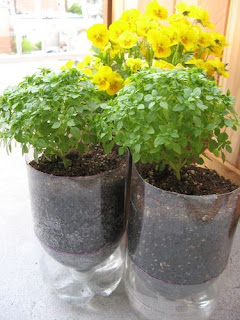No, no, no......I was not going to talk about that soymilk brand. Neither about Silk Smita. Nope. Nada. What were you thinking? wink, wink
I am going to talk about our favourite silk, which is an unique and
one of the oldest fibres of the world, aptly titled as ‘Queen of Fibres’. After
all, who doesn’t drool after silk and feel like a queen after wearing it.
So, when I came across
this thing called ‘Organic Silk’, I was intrigued. We all know that silk is
made from cocoons who live on mulberry trees. And we all know that organic
means something that does not have chemicals. So, if silk is made from cocoons
how can it have chemicals? Which means all silk is supposed to organic. Simple,
isn’t it?
Turns out, nothing in
this world is simple. silk is obtained from the cocoons of the larvae of the mulberry
silkworm Bombyx mori, which is
a caterpillar and not a worm!! Go figure. For more technical definition of
silk, you can see it here.
What exactly is Organic Silk?
While I was searching for information on silk production, I found few
quite graphic representations, due to which I will not be able to look at my
silk sarees the same way again (at least for some time!!). But mainly the
process involves, rearing the moths in captivity and dissolving them in boiling
water for extraction of fibre.
I know, I know, you get it, so I will stop
blabbering.
Well, the production process is what differentiates silk from organic
silk. Organic silk is extracted when the silkworm is allowed to emerge from the
cocoon naturally. Also the mulberry trees are not spread with insecticides or
other chemicals. No synthetic additives are added during its manufacturing
process. Organic silk is also dyed with natural dyes.
Other types of Silk
Vegan Silk or Peace Silk or Ahimsa Silk – Very much like organic silk where the cocoons are allowed to hatch
naturally
Raw Silk – Simply Silk that has not
been chemically processed.
Pros of Organic Silk
- Some claim that it has medicinal and anti-inflammatory properties. However no such research or study is there to substantiate it.
- Since, it does not have chemical dyes, it is definitely going to help people with sensitive skin.
- And if you are vegan, it is going to give a huge boost to your conscience.
Cons of Organic Silk
- No Certification of Government regulation of Organic Silk.
- Though available in India, it is very costly.
So that’s all for you
to ponder about organic silk. Meanwhile, here are some awesome organic silk
sarees from Jaypore Sarees to ogle.
While, I will see my
silks and shed some tears (crocodile tears? Or maybe caterpillar tears?) till
the organic silk become a little bit more affordable.
Do not want to miss such posts? You can subscribe to this blog by email
Enjoy
Ecoliciously Organic


















